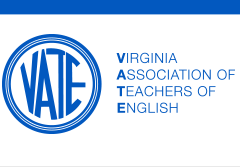Abstract
This article explores the unique literacy needs of adolescent learners and challenges the traditional practice of literacy remediation, often tied to standardized test scores, in U.S. public schools. A call for more responsive literacy instruction that employs a disciplinary, holistic approach rather than a skills-based, deficit-informed approach is articulated, as well as recommendations for practice in literacy instruction informed by research on literacy identity development. As we begin to imagine our schools in a post-COVID world, we must rethink our instruction and move toward a model of literacy that is more relevant, more responsive, and, above all, more human.
Recommended Citation
Lague, Michelle
(2021)
"Re-imagining remediation: Problematizing adolescent literacy remediation,"
Virginia English Journal: Vol. 71:
Iss.
1, Article 3.
Available at:
https://digitalcommons.bridgewater.edu/vej/vol71/iss1/3
Included in
Curriculum and Instruction Commons, English Language and Literature Commons, Language and Literacy Education Commons

